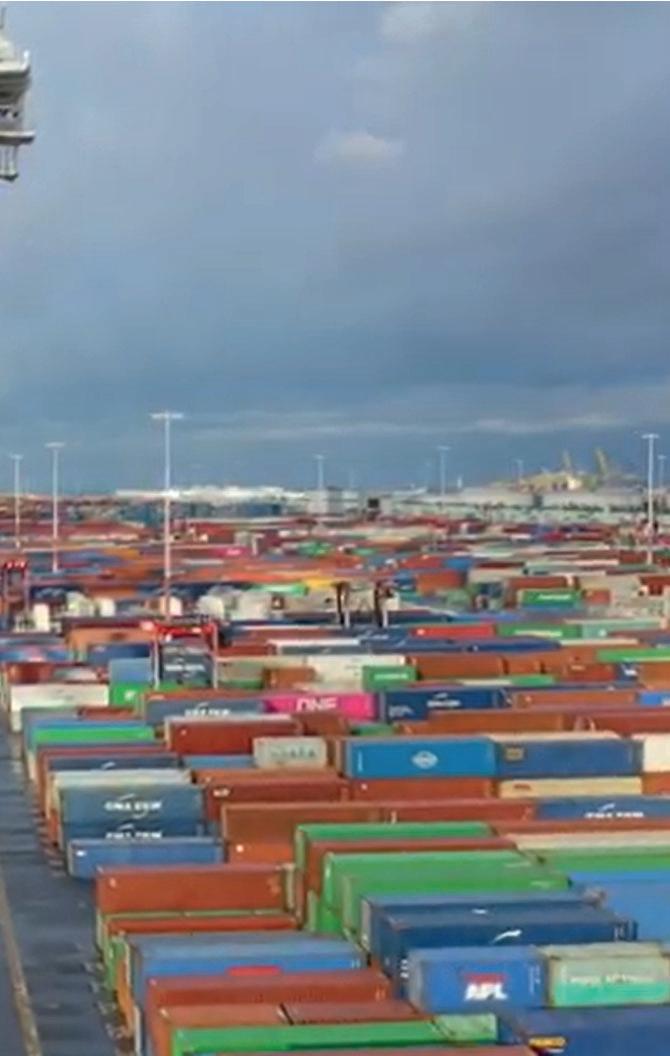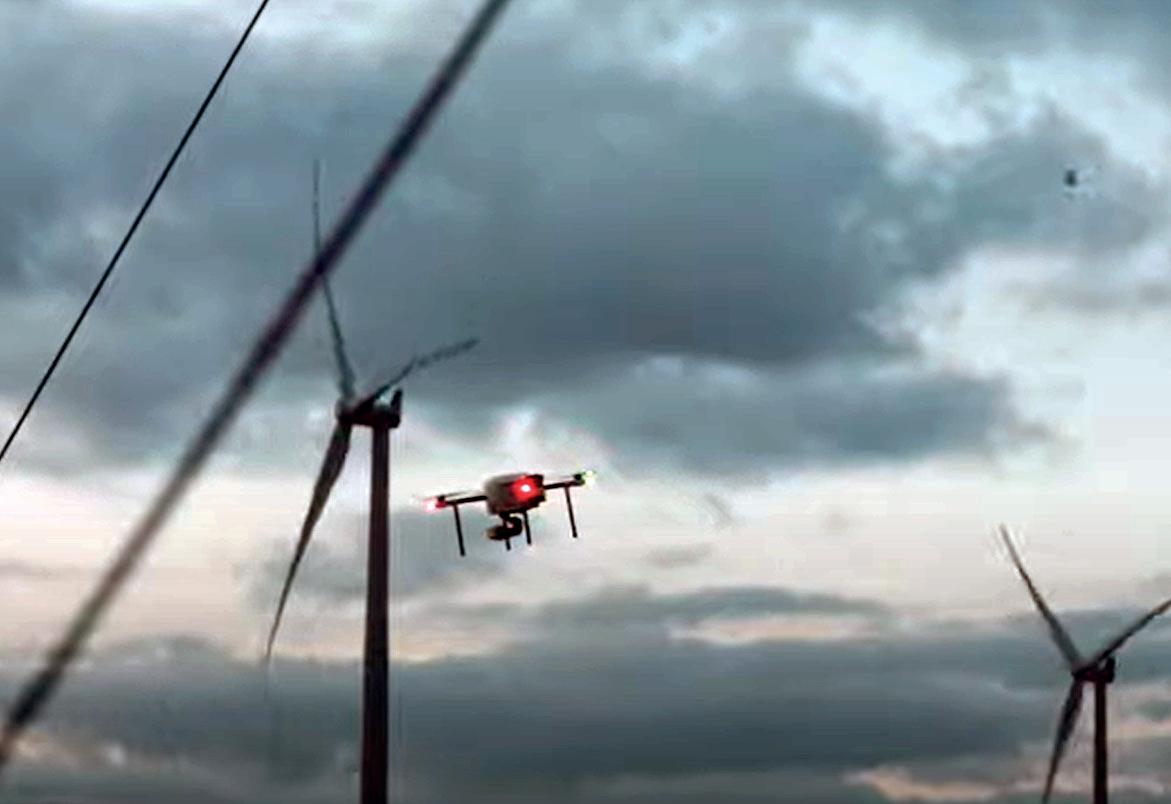
5 minute read
Smart Ports Doctrine
NEWS FROM THE FRONT LINE
Four companies talk to John Bensalhia about recent initiatives that contribute to the smart port doctrine


There is considerable R&D activity in the arena of so-called Smart Ports. PS continues to maintain regular coverage of key developments in our Digital News pages but this month additionally highlights news from the user and system supplier sides of the sector from four front-line companies.
NOKIA: BROAD-BASED INNOVATION
“We are seeing innovations around OCR technology, IoT sensors, higher usage of AI & ML and rising electrified automated container handling equipment,” says Venkatesh Ramakrishnan, Nokia’s Head of Maritime, Logistics and Retail Verticals. He underlines that digitalisation helps in increasing transparency in operations, allowing for further optimisation and efficiency gains. “These efficiencies lead to a reduction in cost and improvement in operations quality. Digitalisation/ automation also has a positive sustainability impact: a large amount of automated container handling equipment is electrified.”
Nokia has seen a rise in demand for private LTE and 5G networks. “We see more asset digitalisation and automation technologies coming up in the port environment to improve port operation processes,” says Ramakrishnan.
Because ports are harsh external environments, any digitalisation solution considered for this environment must be resilient and robust. Ramakrishnan adds: “The solutions that get deployed in a port environment must seamlessly integrate with the end to end solution inside the port, but also must interact/integrate with the wider supply chain consisting of other companies/parties.”
For the future, Ramakrishnan says that ports are riding the wave of Industry 4.0 with IoT devices and sensors, automated container handling equipment, with various applications bringing varied use cases/solutions, and finally, a strong AI/ ML that processes the huge amount of data a port can generate.
ANTWERP-BRUGES: THREE SMART TECHNOLOGIES
Three key smart technologies are driving enhanced port security, detection and inspection at the Port of AntwerpBruges.
The Digital Twin is a digital copy of the port area that offers real-time data on every aspect of operations. The application is driven by its ‘brain’: the Antwerp Port Information & Control Assistant (APICA)), with the ‘face’ being a 3D interface producing real-time information.
The Digital Twin allows the port to detect and monitor all happenings, resulting in stronger safety and efficiency levels.
Monitoring port activity is accomplished in other ways such as via Smart Cameras, in excess of 600 at Antwerp.
Another method being worked on in conjunction with various partners is the drone, which will be used to detect any risk or issue such as oil spill, floating waste or fire.
This is where use of 5G comes in. The port says that it is working on a private 5G network that can use real-time information from the drones and cameras. The network will link the port with local services such as police or fire, and using the real-time data, can react accordingly in the event of any security or safety risk.
HAROPA PORT: MORE COMPETITIVE
The merger of three ports of the Seine Axis (Le Havre, Rouen and Paris) favours deployment of standardised, highperformance digital solutions that make maritime and river traffic easier and more competitive.
8 HAROPA PORT
has developed a port cybersecurity platform, and worked on exchange of data with the municipalities in favour of the city-port interface

Venkatesh Ramakrishnan, Head of Maritime, Logistics and Retail Verticals, Nokia
“From the year of the merger, in 2021, HAROPA PORT has initiated, with SOGET, a harmonisation of its digital tools at the scale of the axis,” says Clémence Rebours, HAROPA PORT Press Officer. “The ports of Rouen, Paris and Le Havre have benefited from the deployment of the integrated S)One system for cargo management (CCS).”
Harmonisation is continuing with the aim of a convergent system for the management of port calls and port operations between Rouen and Le Havre in 2023. Rebours says that the next step is a one-stop shop for ships, passengers and goods, which a European regulation requires by 2025.
HAROPA PORT is working on several innovative projects: in particular for the complete dematerialisation of road/rail transport documents and the use of blockchain for the traceability of hazardous materials. “This work on data should provide information on logistics, such as the carbon impact of transport modes, and lead to better synchronisation of flows.”
With the SmartPortCity initiative first launched in Le Havre, HAROPA PORT has developed a port cybersecurity platform, and worked on exchange of data with the municipalities in favour of the city-port interface. Rebours comments: “A 5G Lab has also been set up to initiate the deployment of 5G in the port context, notably with the project of the connected water level, enabling ships to exchange data from onboard to on land such as bathymetric information (depth and relief).”
8 Port of Antwerp-
Bruges: Drones can be used to detect any risk or issue such as an oil spill, fl oating waste or fi re
Awake Marketplace Launches
Awake.AI has announced the launch of the Awake Marketplace – via which trade port call and logistics services, digital information and physical products can be acquired utilising the power of an AI-driven logistics data platform.
The company states: “Awake Marketplace enables wide trading of services, digital and physical products with ease. Marketplace knows how ports operate and how trading is performed. With modern and ML-enhanced tools selling and buying is fast. Pregenerated shopping carts can be created for a port call, ready to be fine-tuned and pur-chased.” It claims the following attributes for the system: 5 Trading with the power of Marine AI 5 Fast and intelligent buying and selling of port services and products 5 A marketplace structured in accordance with a holistic logistics data platform and 5 It represents a comprehensive collaboration solution in port and maritime logistics
To join up Awake.AI states this is by means of a registration and approval process.
It is clearly an interesting initiative and it will be interesting to see if is taken up on a wide scale. Will it, for example, be able to accommodate the strong bargaining mentality that exists in the maritime and logistics sector – “cut and thrust” as it is known in common usage? Another question is, how will Awake Marketplace make money? If it is via taking a commission on a sale then presumably this could eat into any discount a company could obtain by going direct to the service or product supplier?
The jury is out, let’s see what happens.










